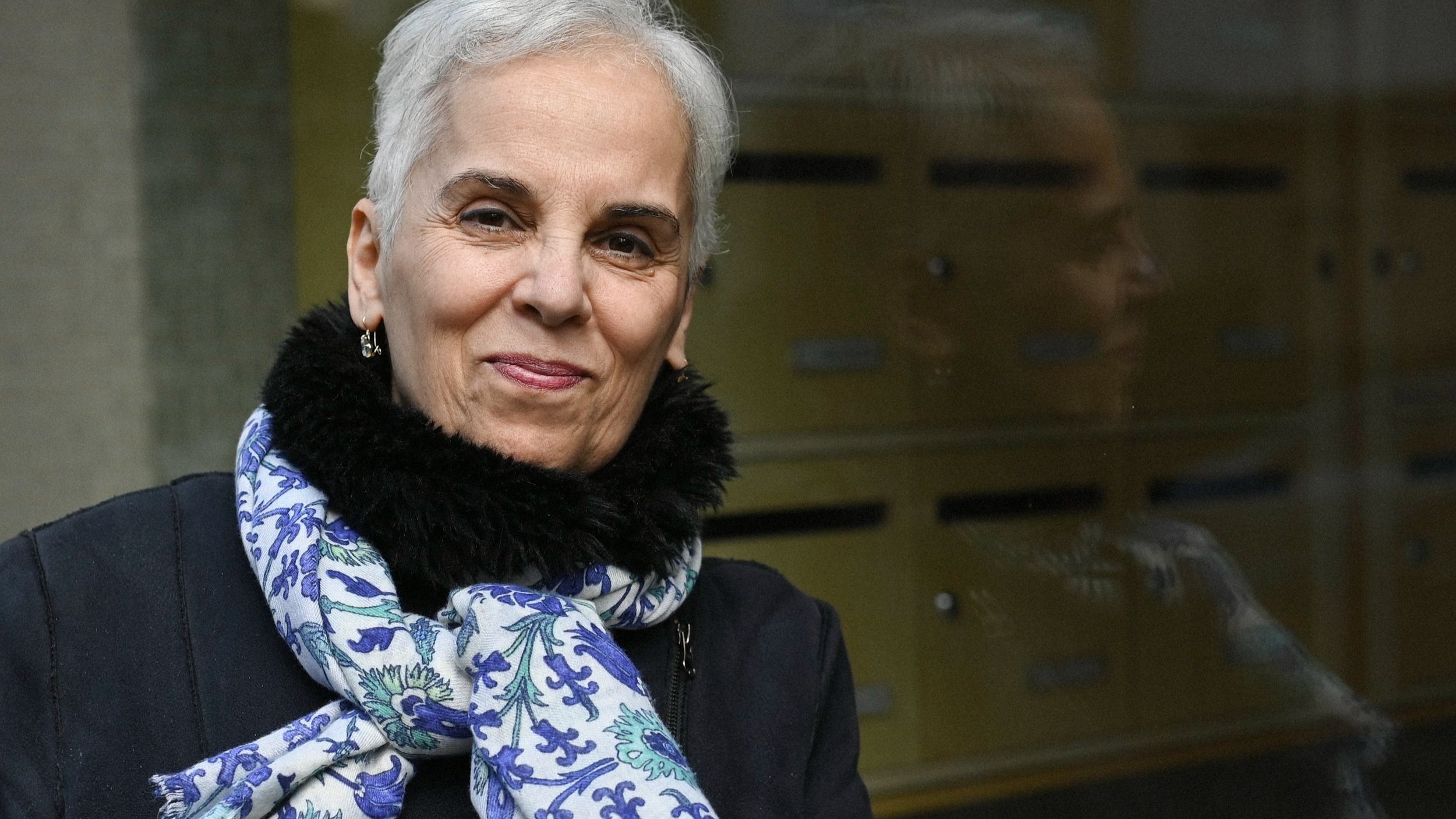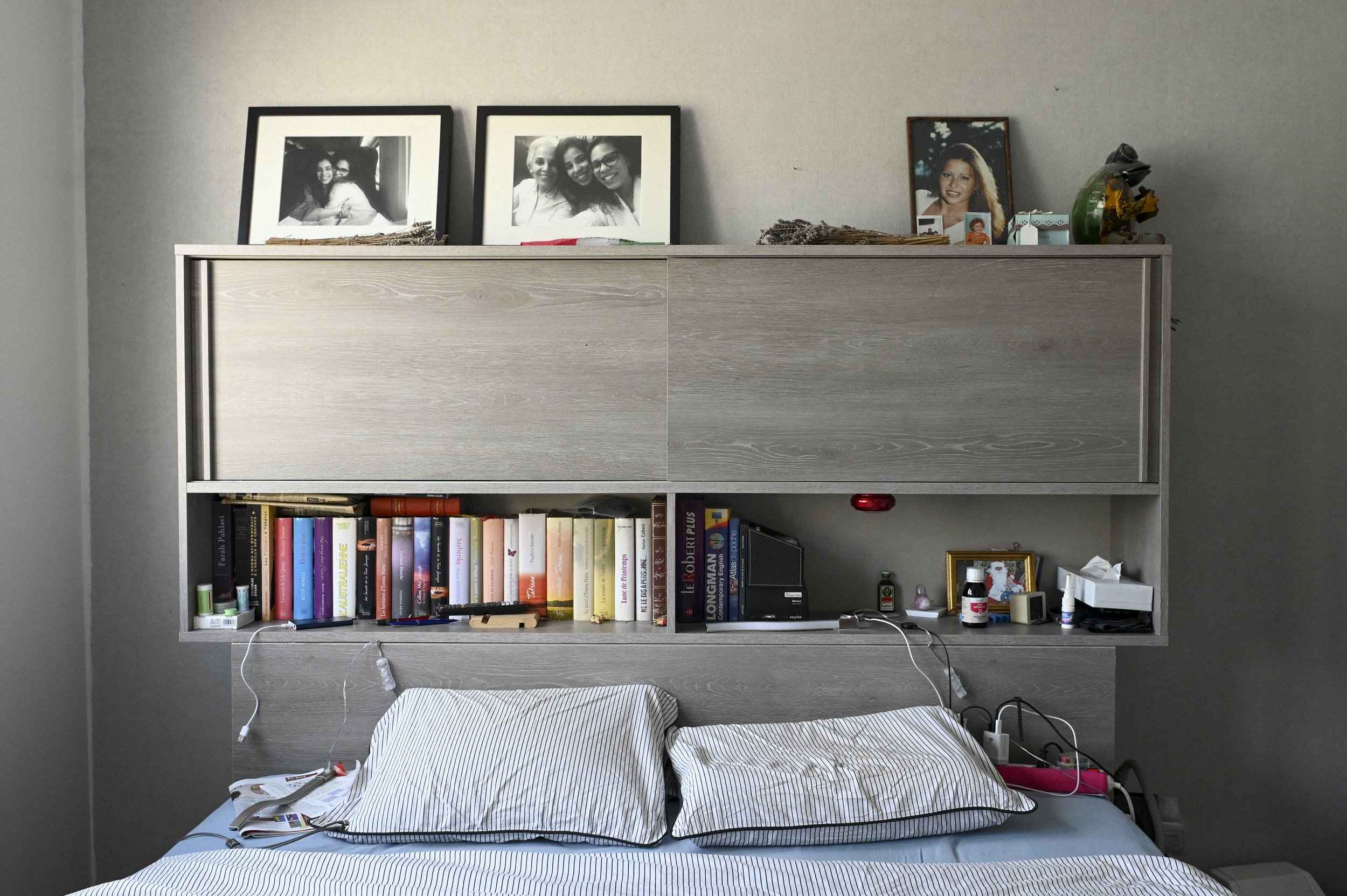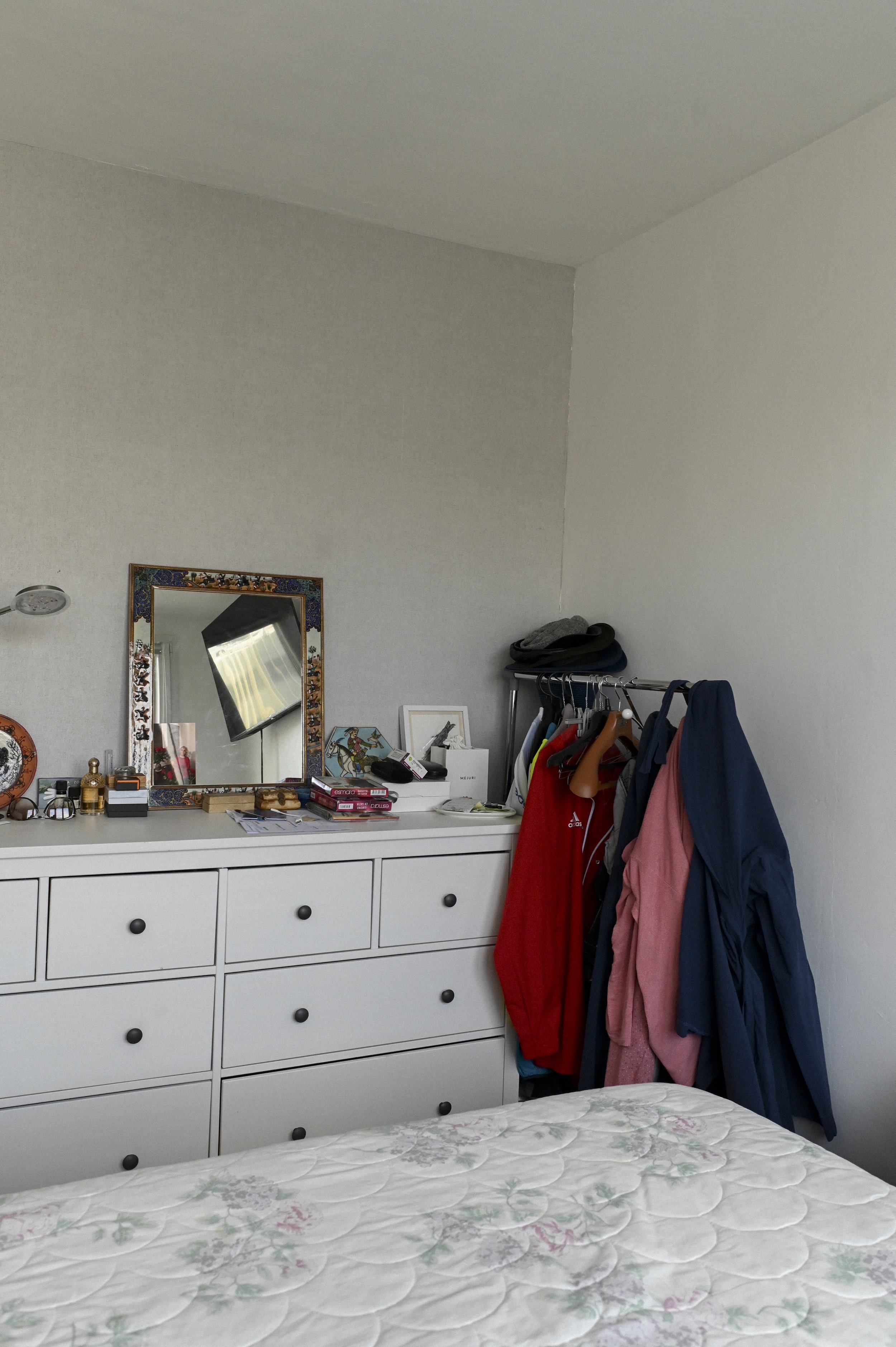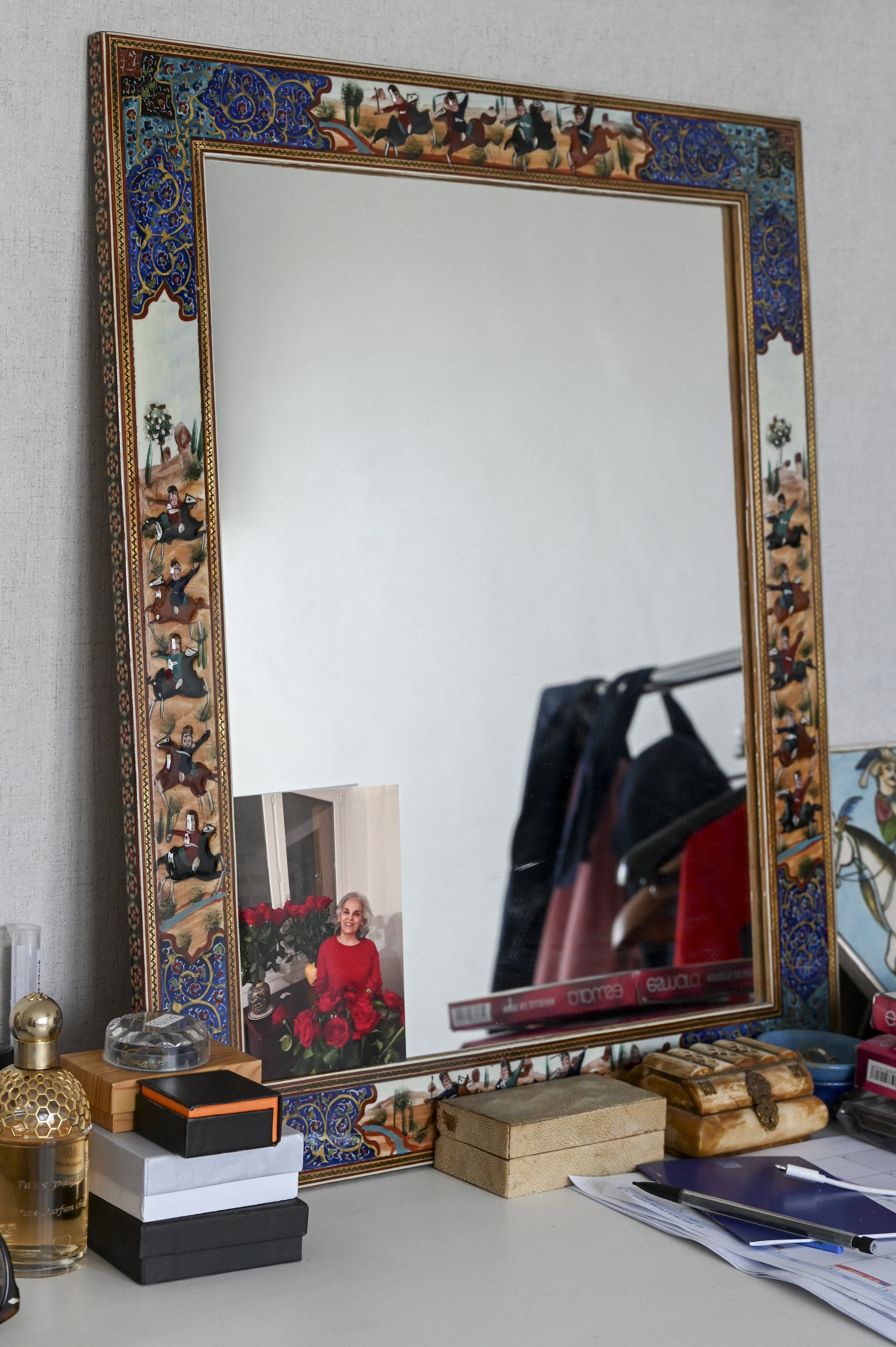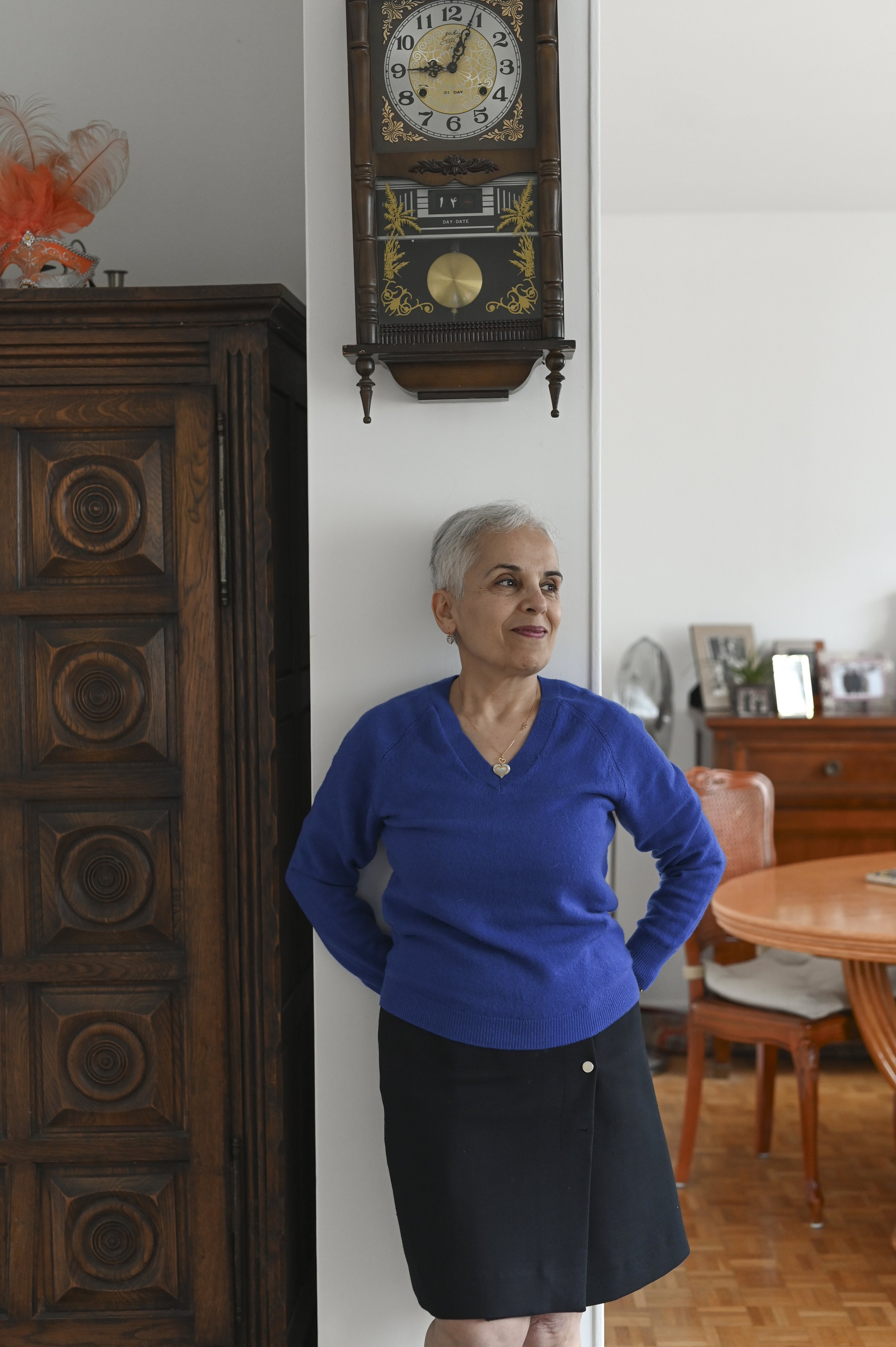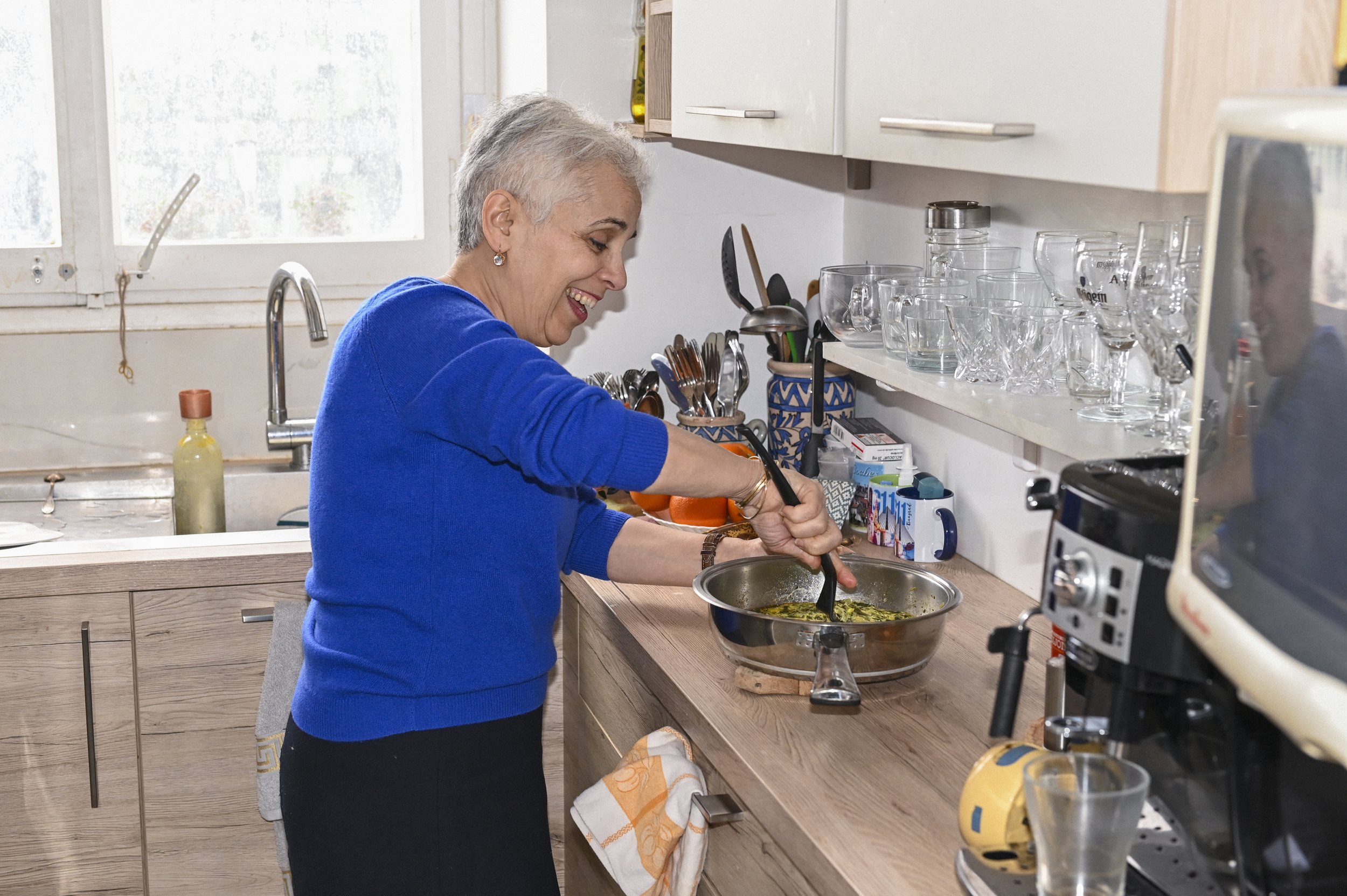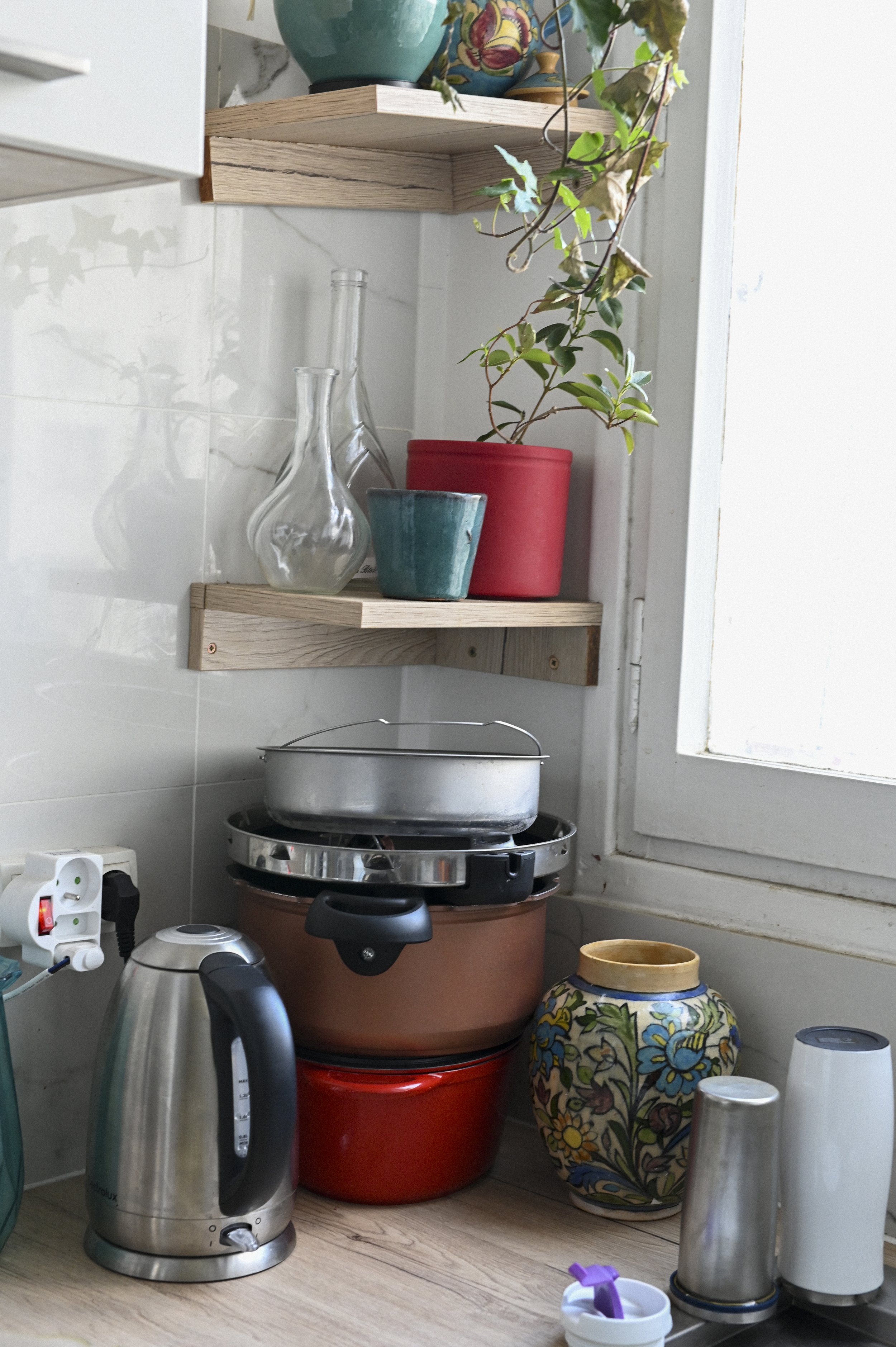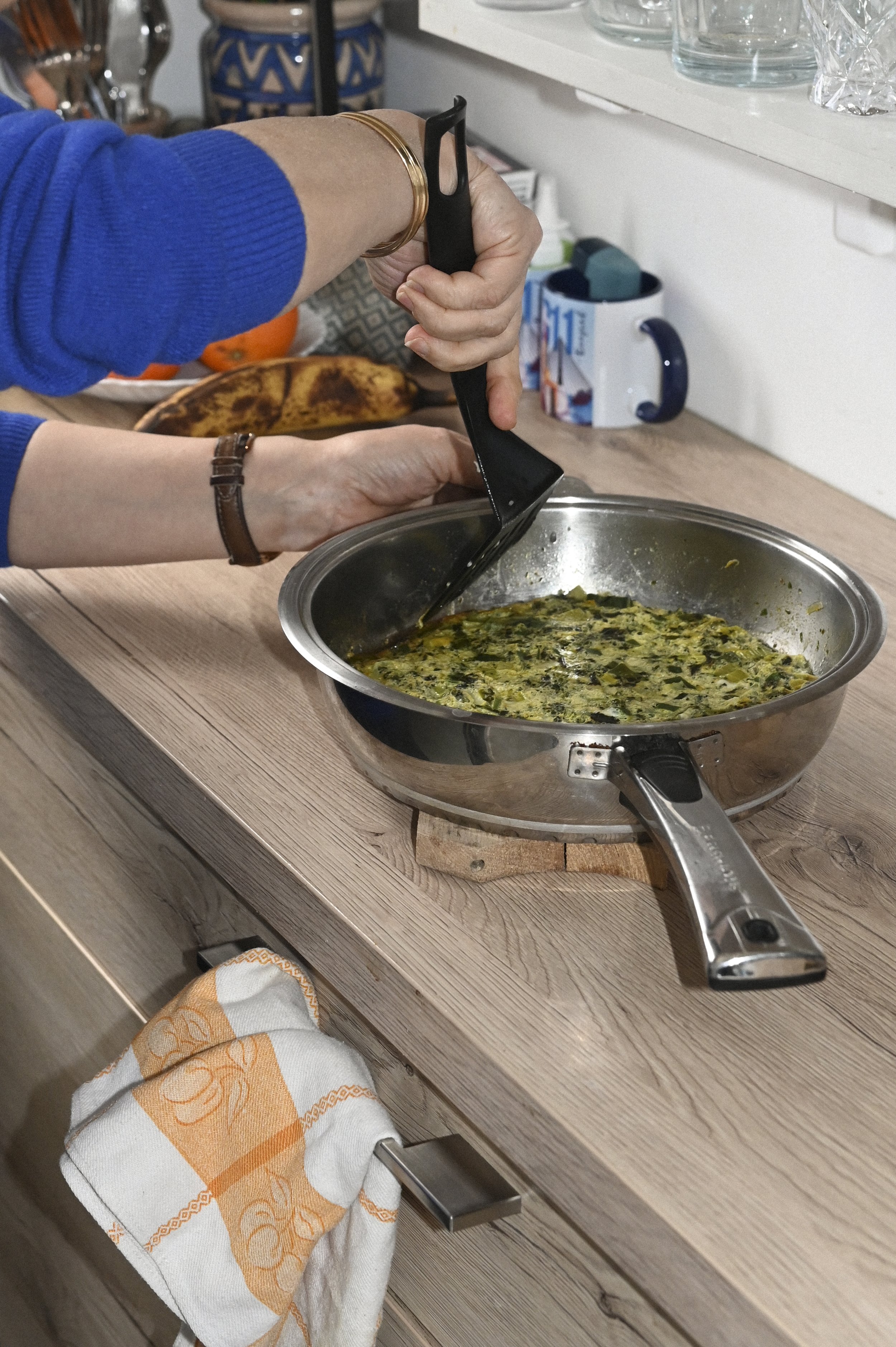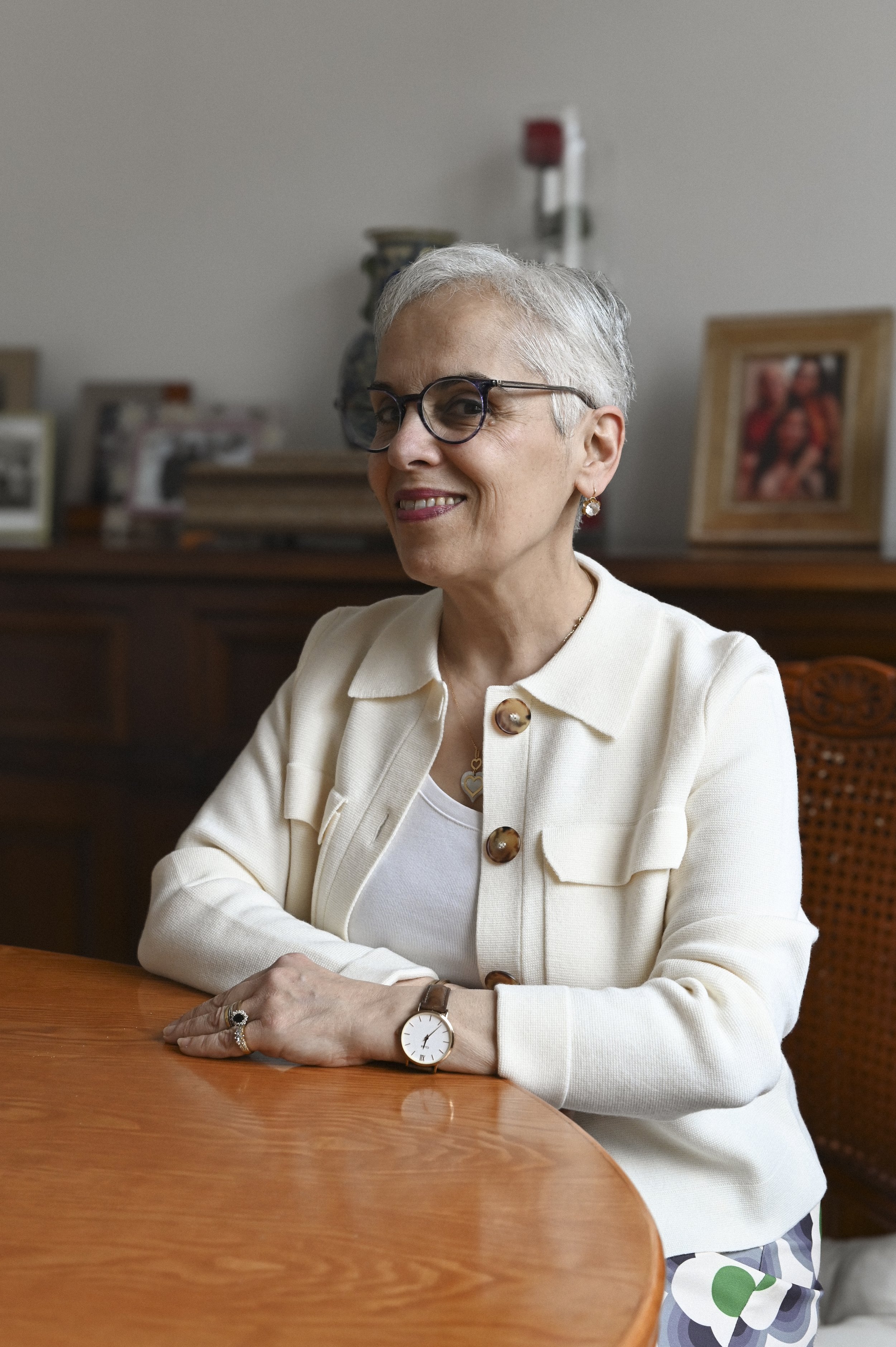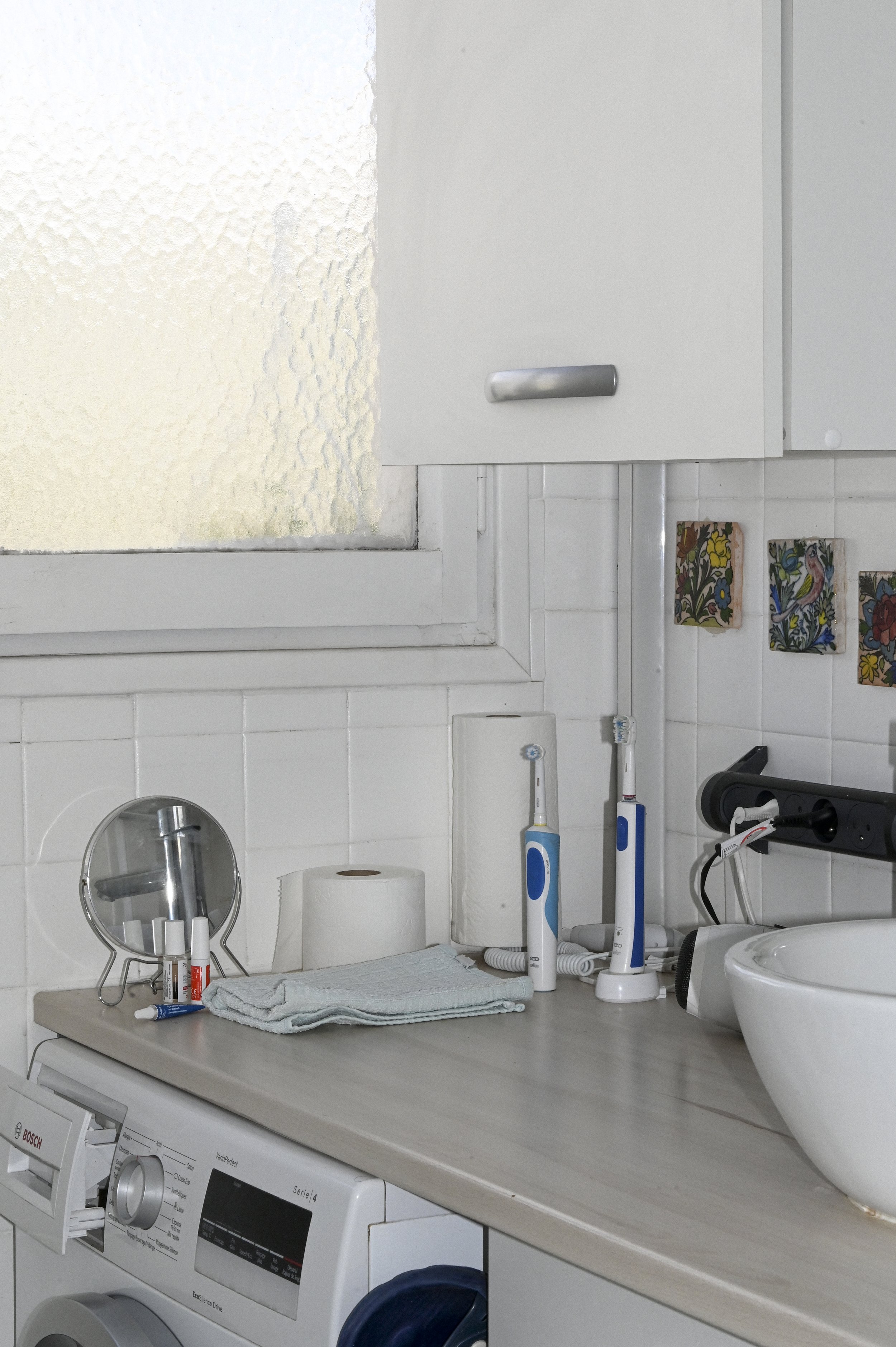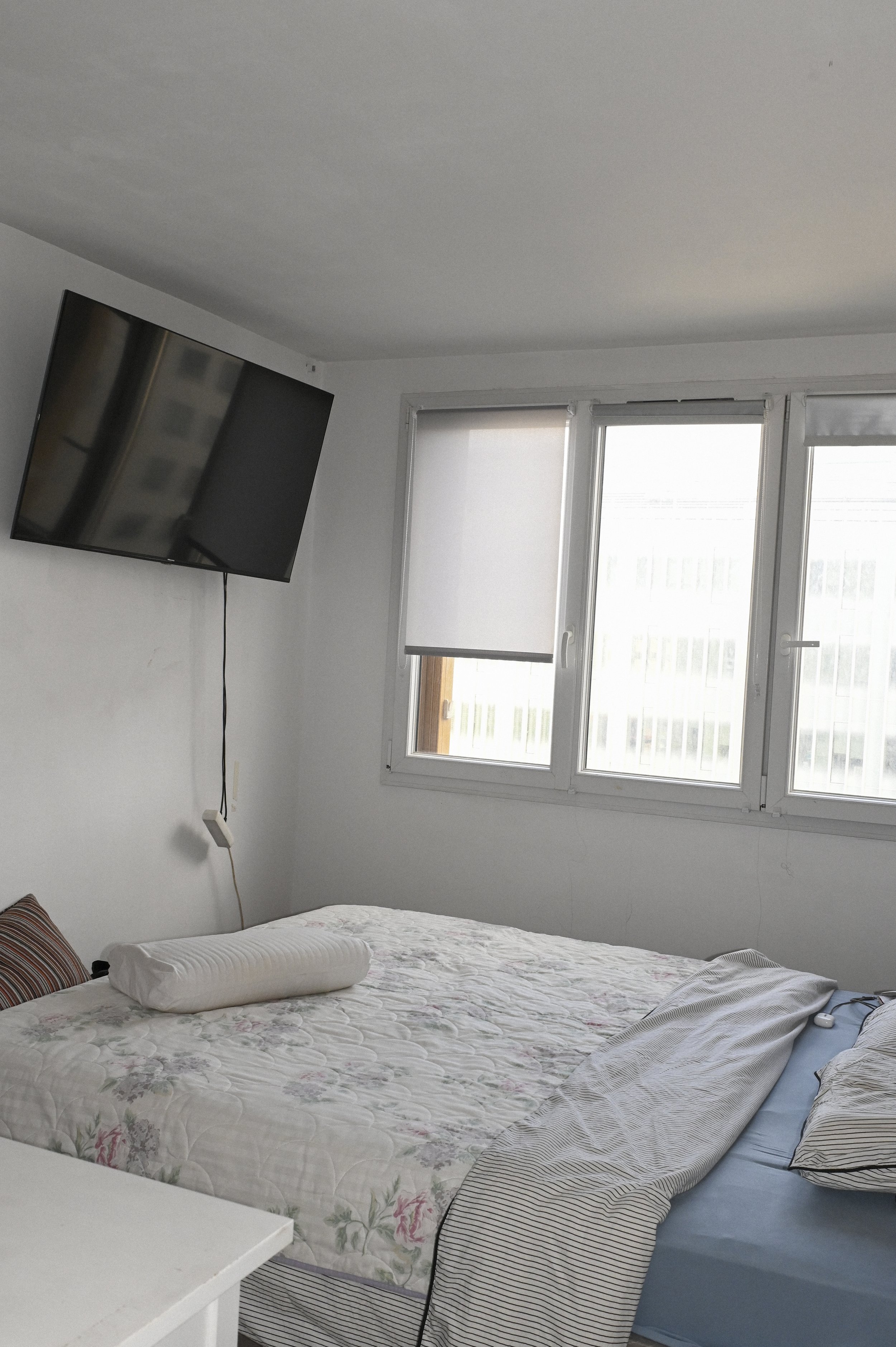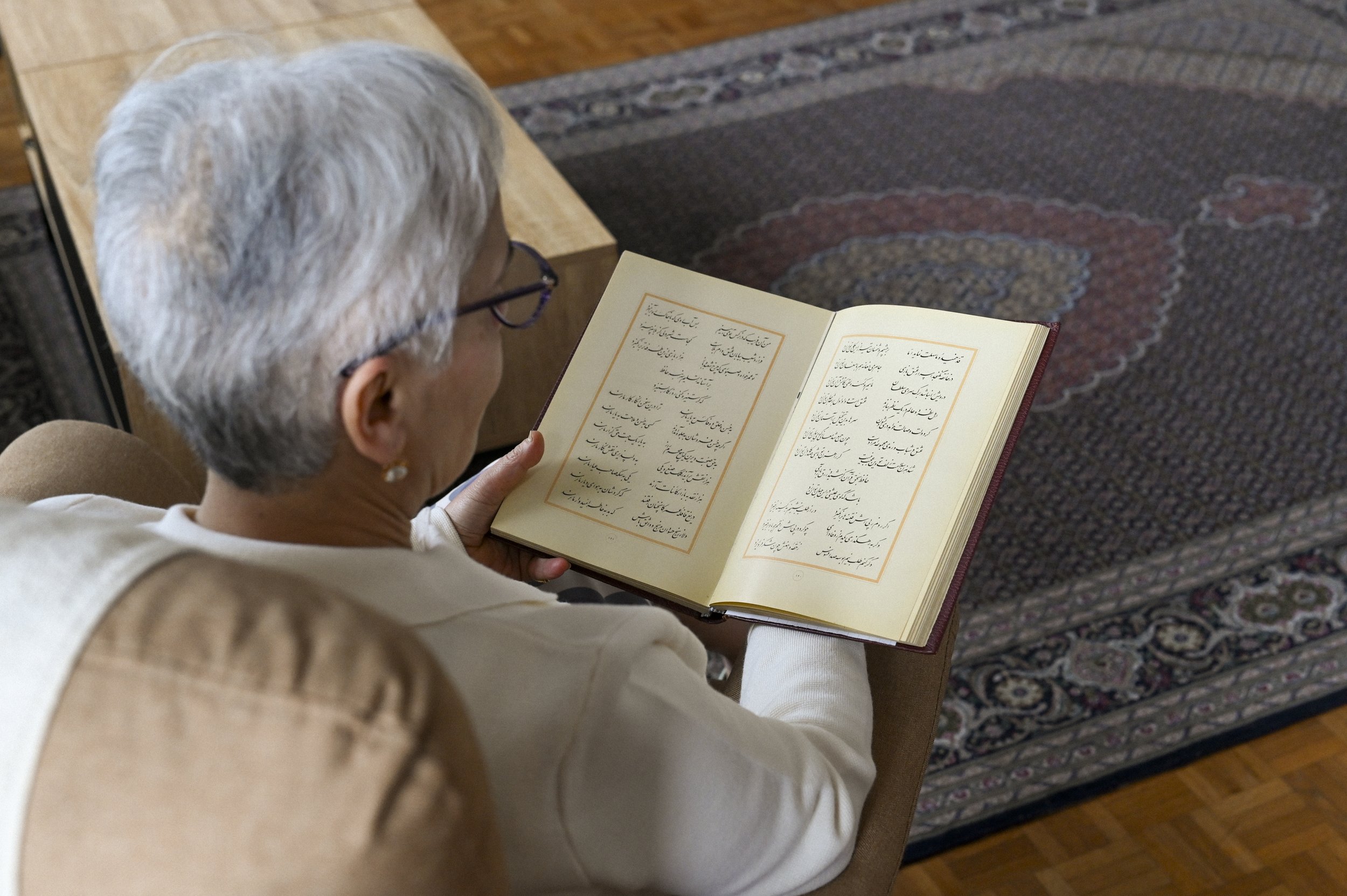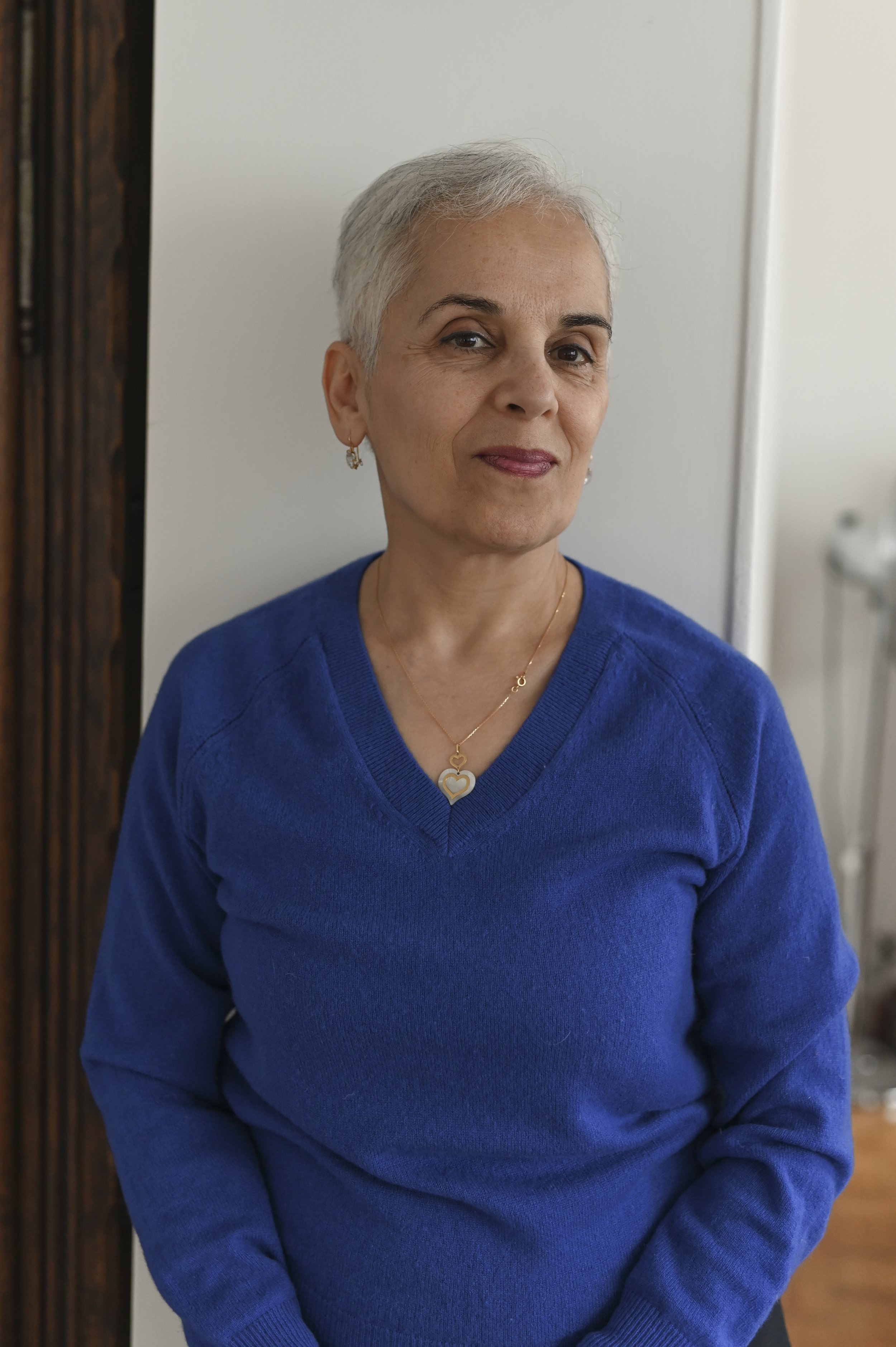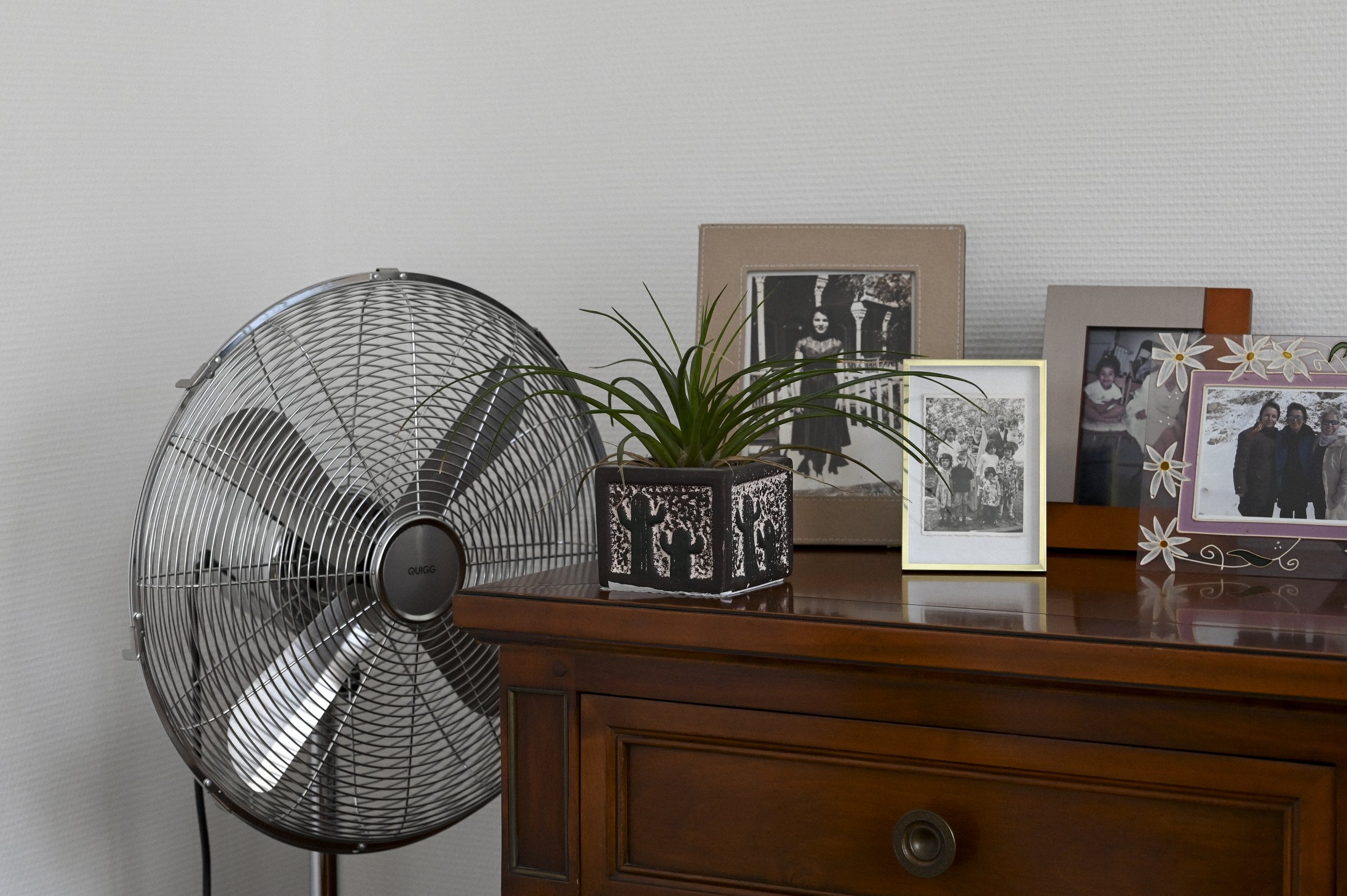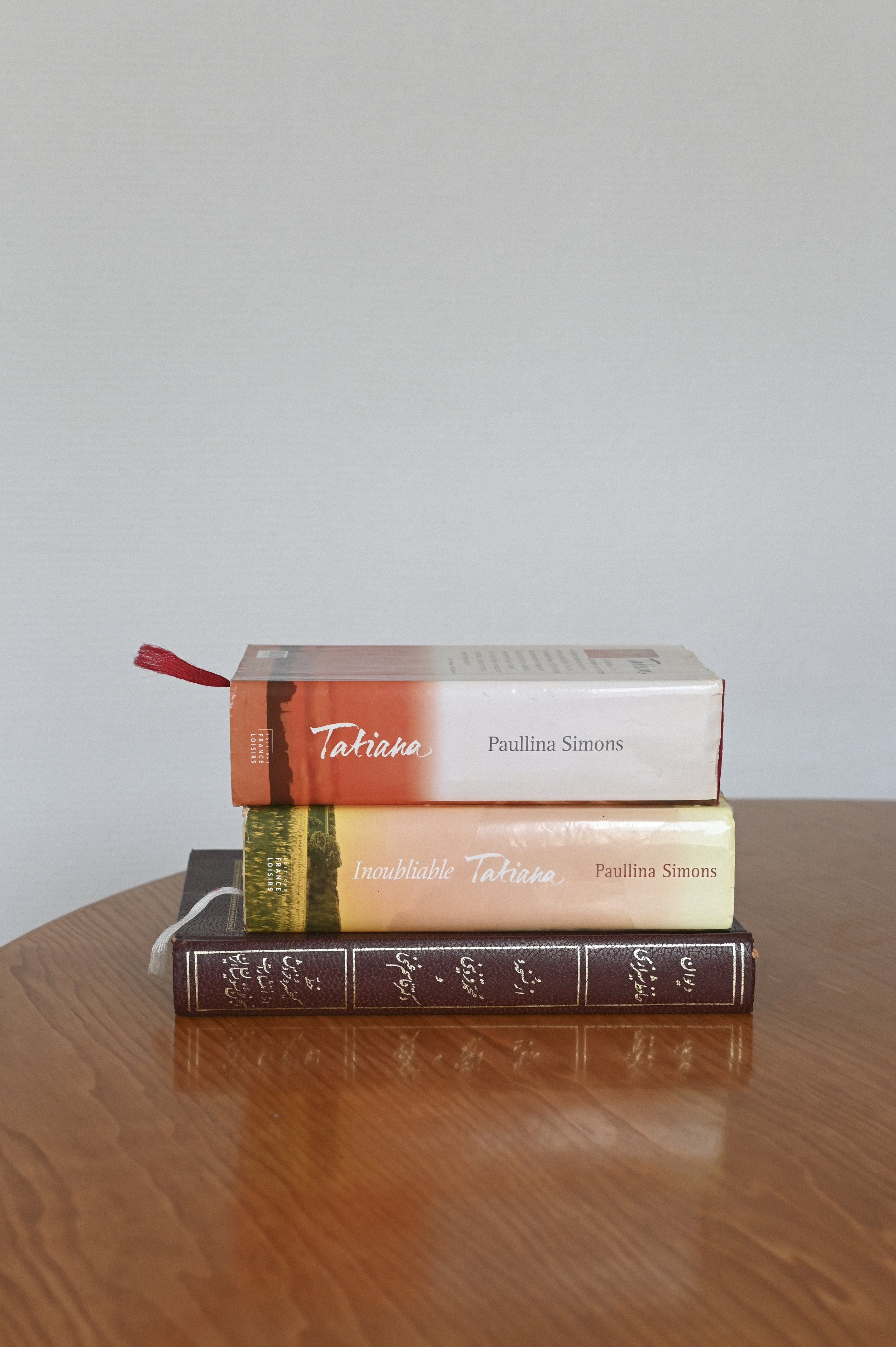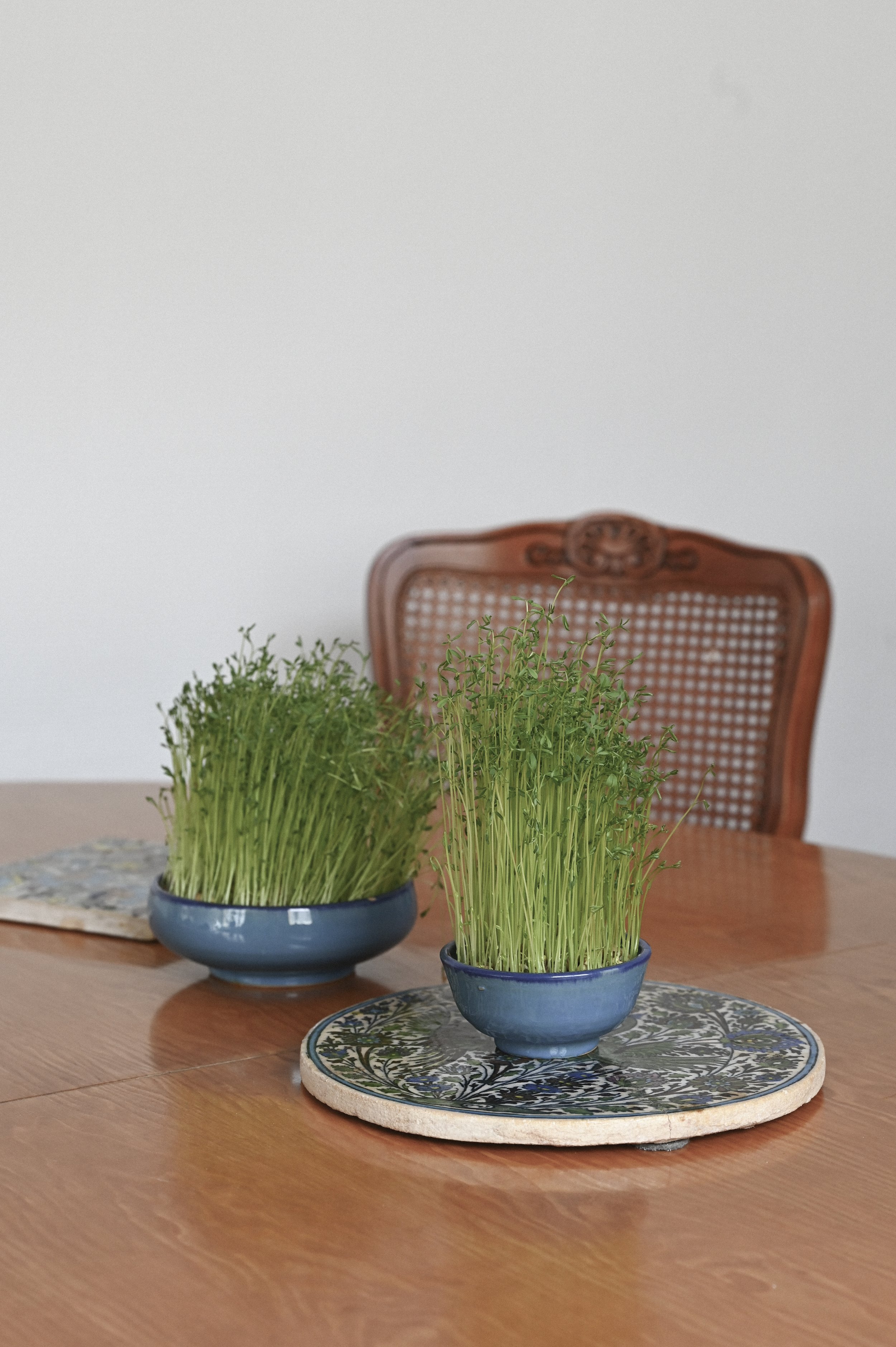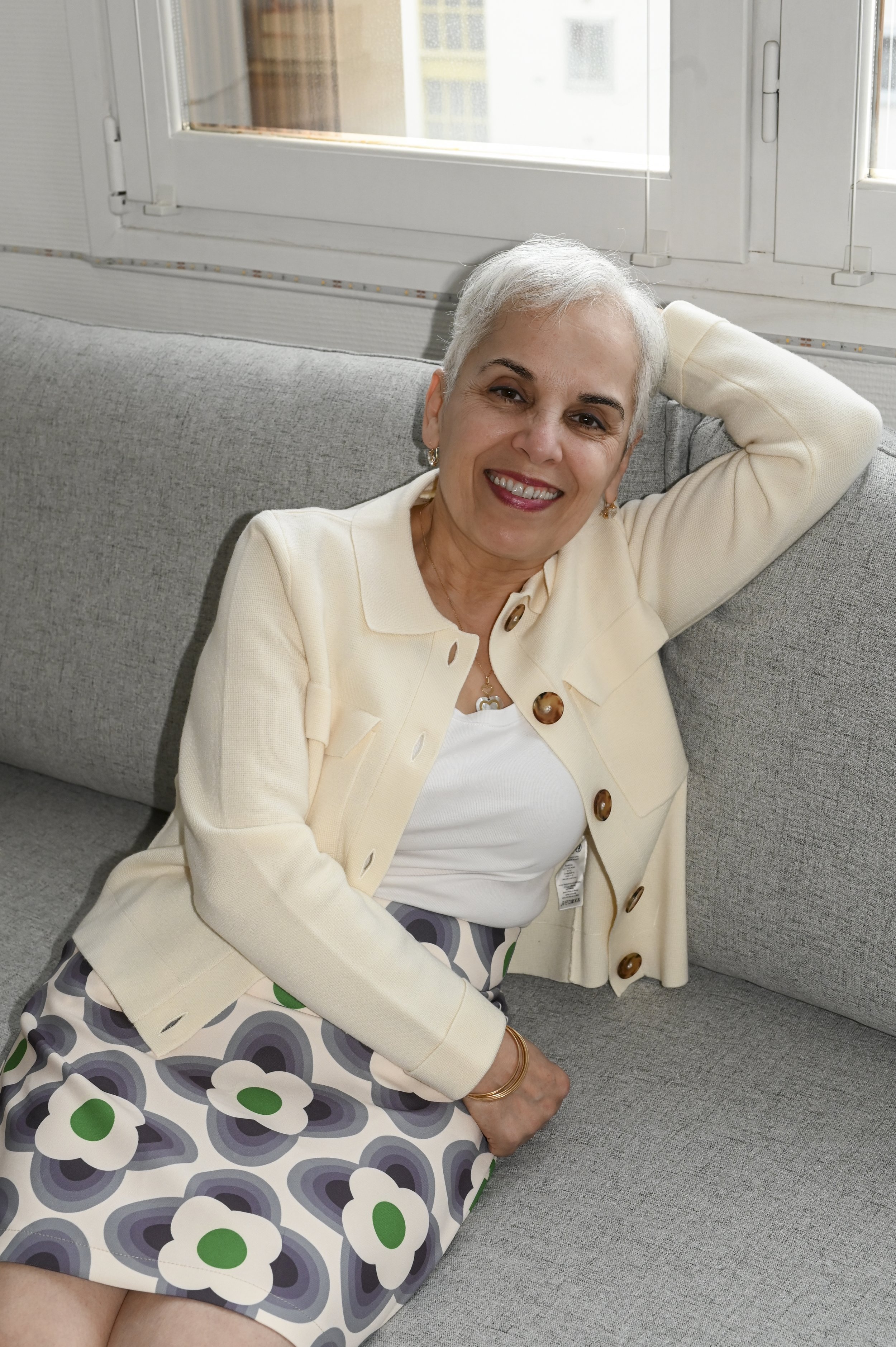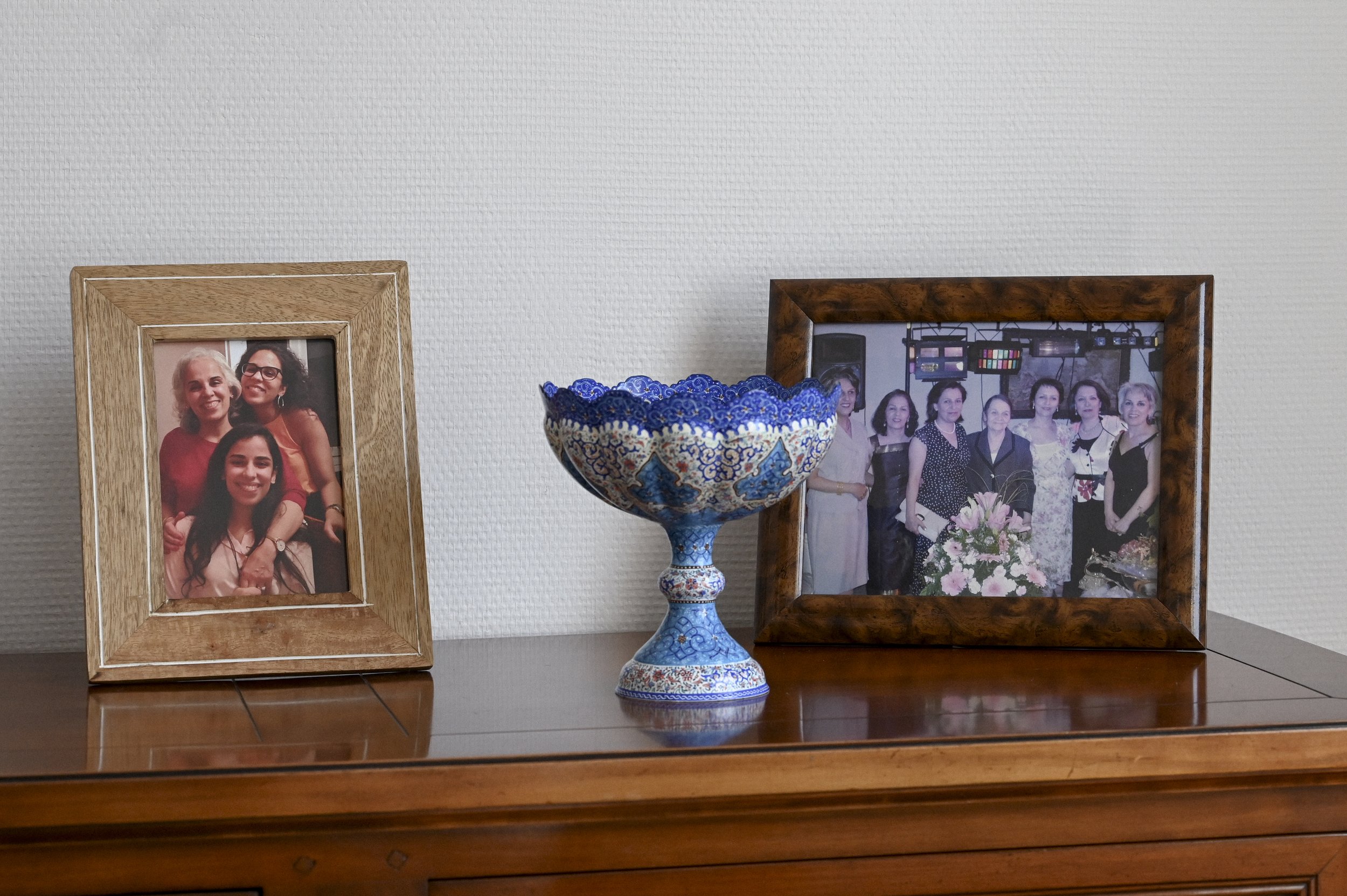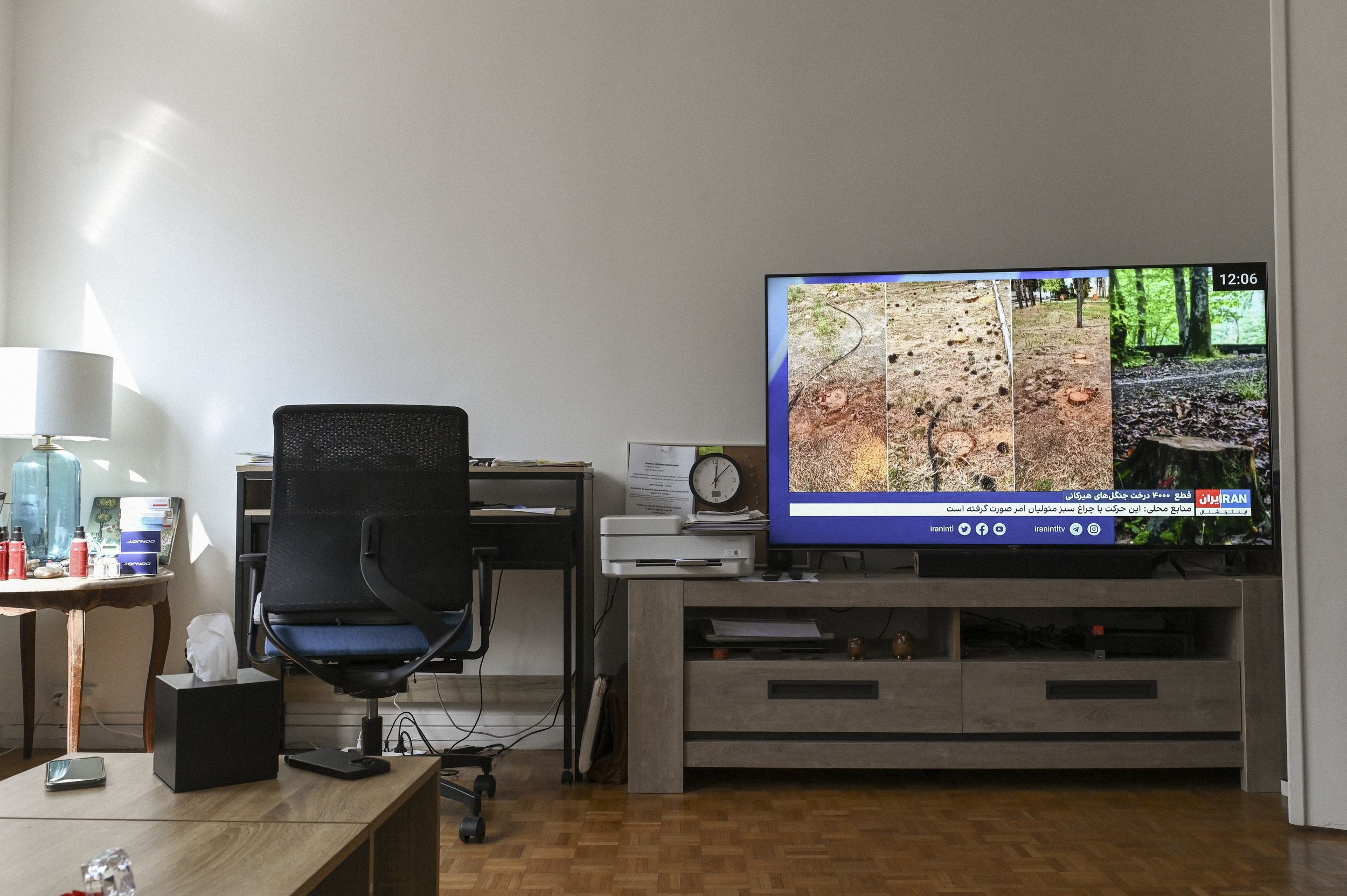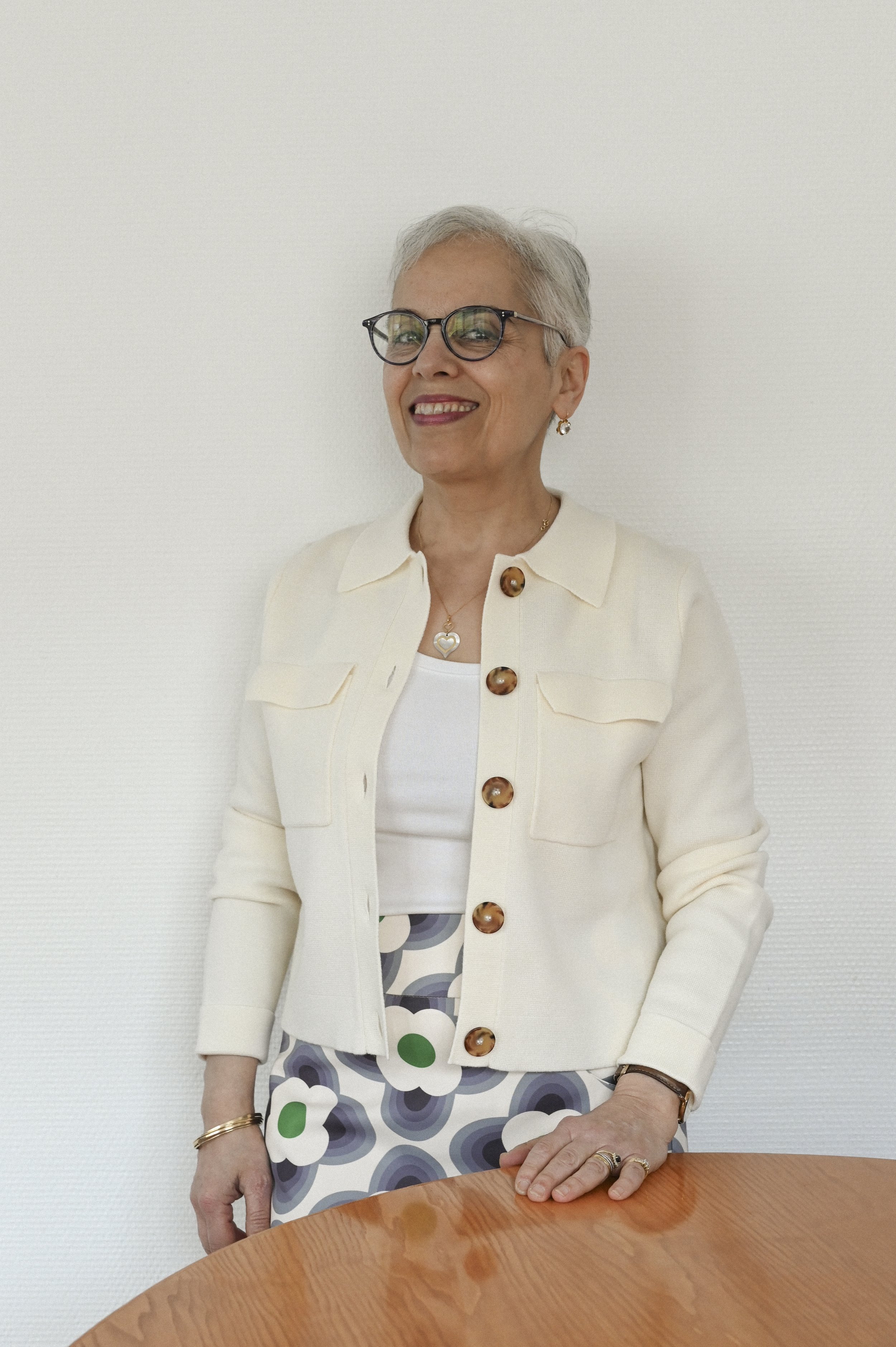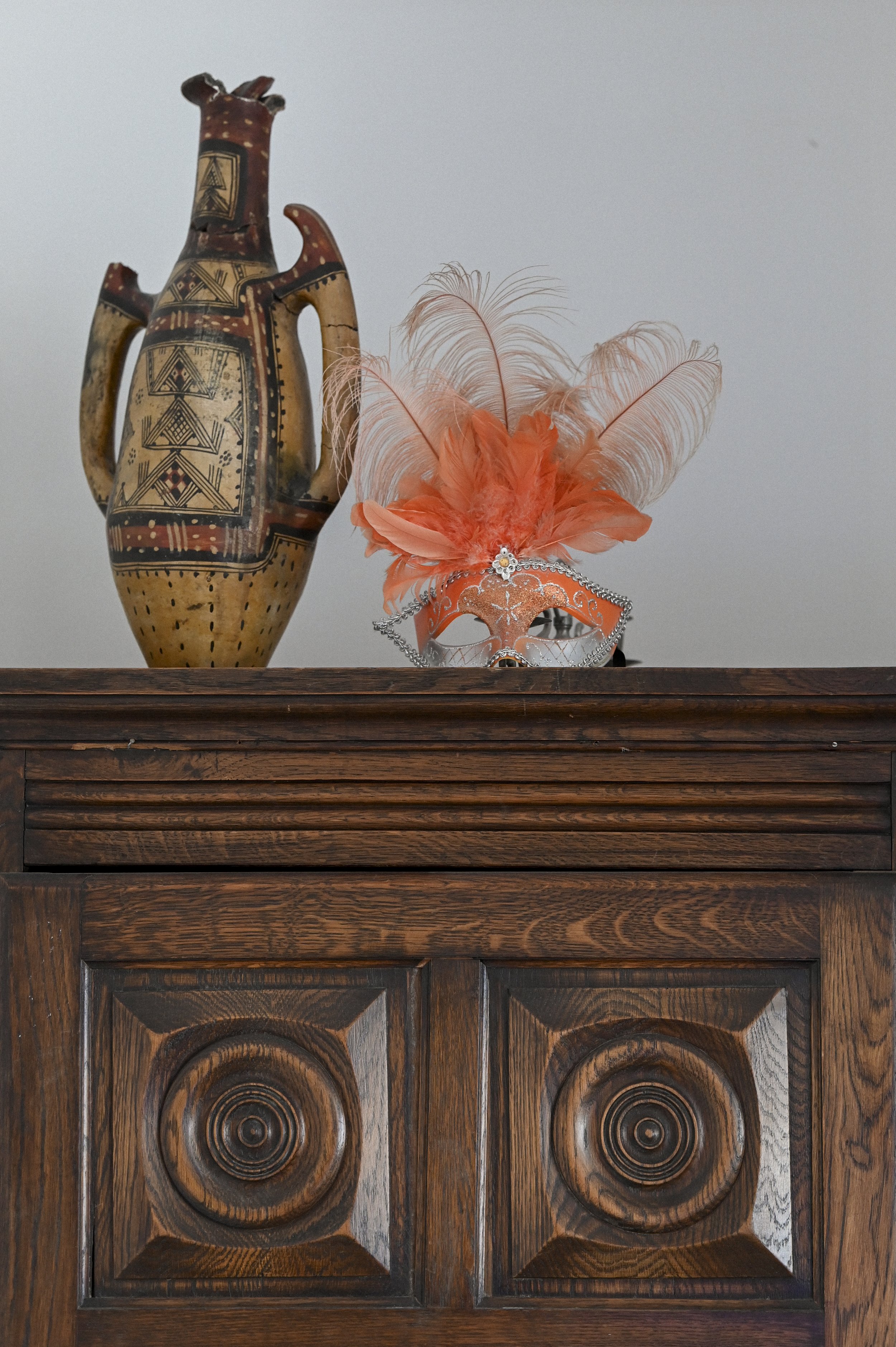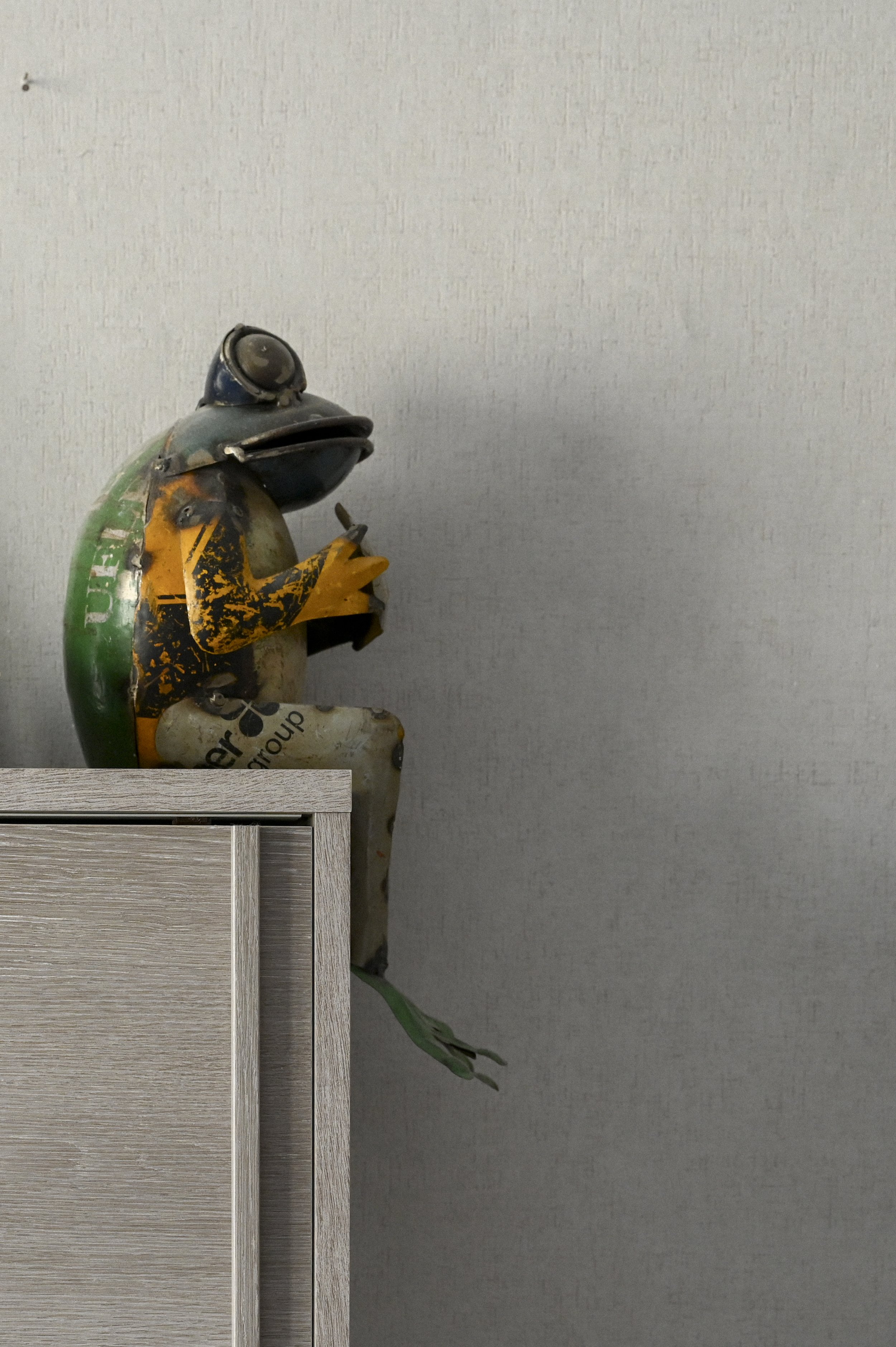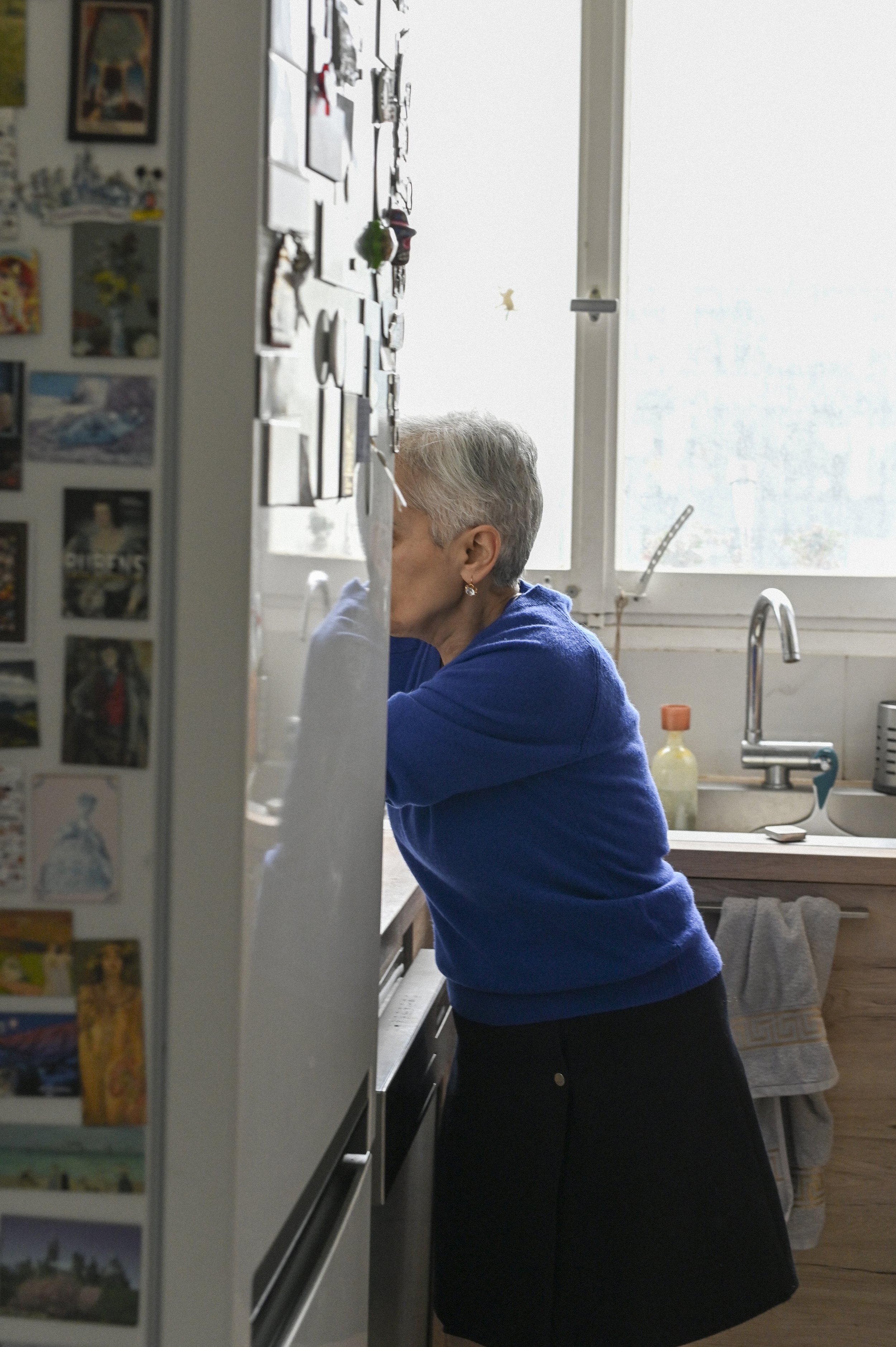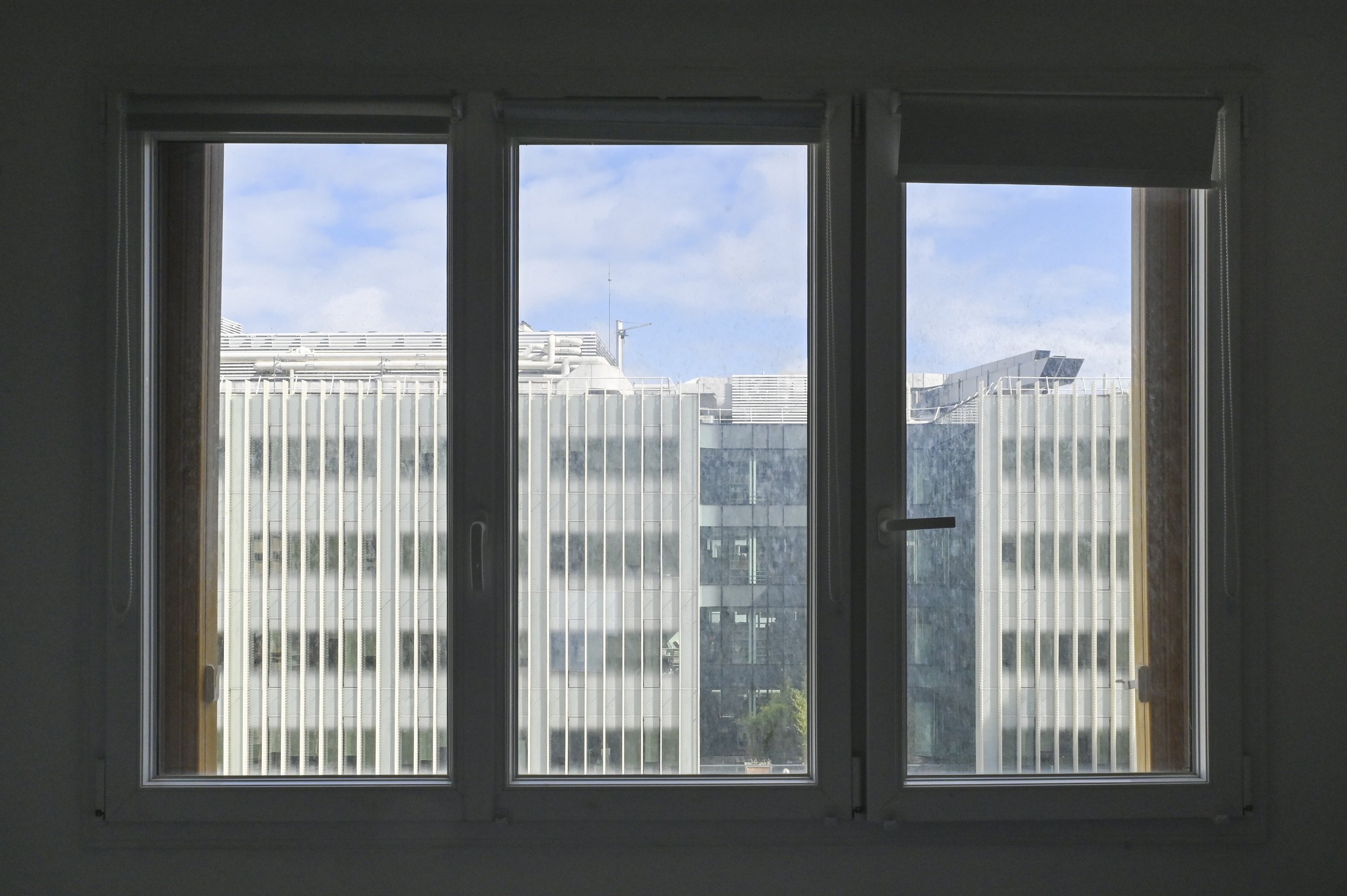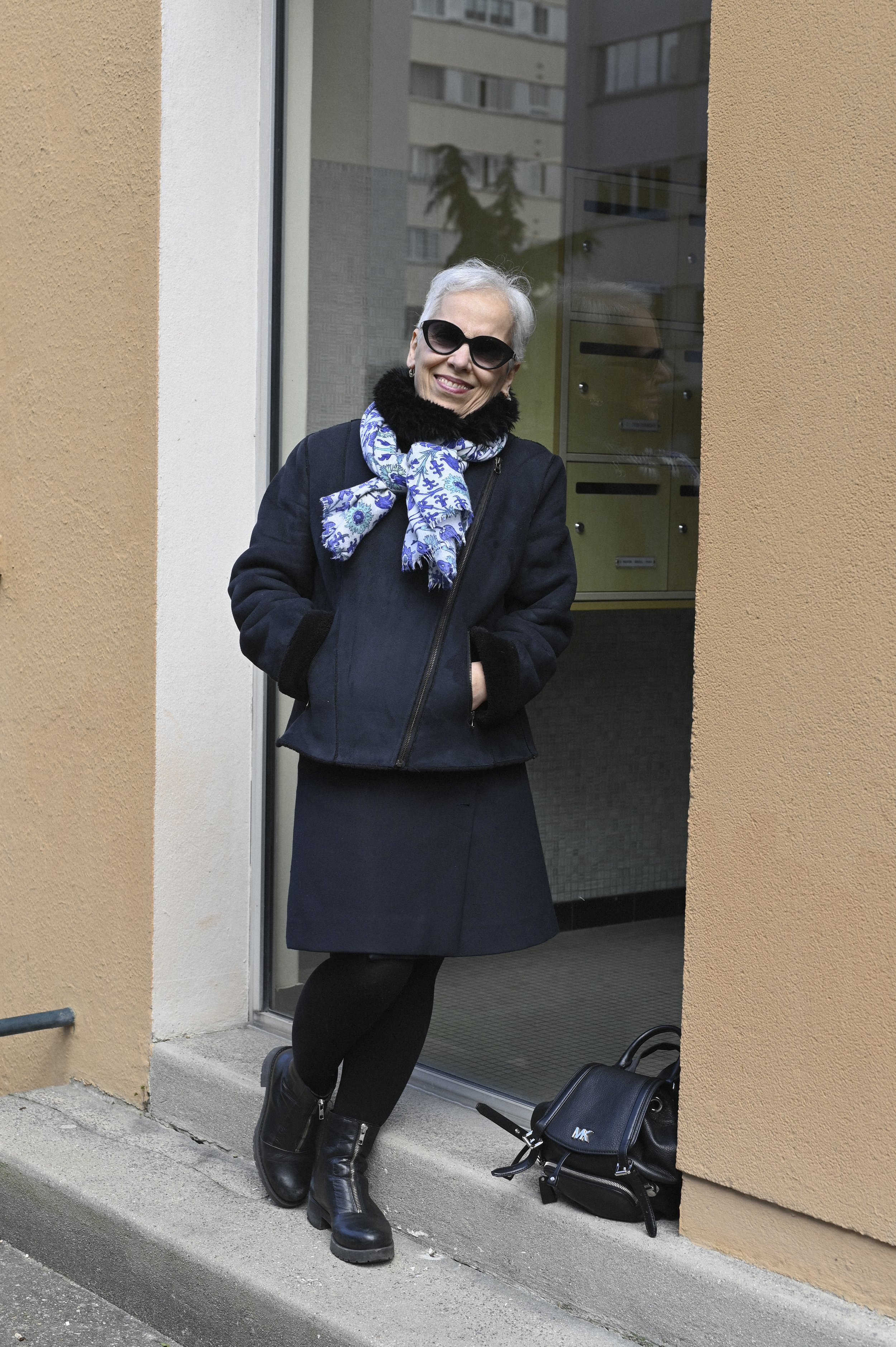Most days, Marzieh can be spotted at her shop in Paris’s 5th arrondissement, Les Trésors de Perse, where she brings Persian crafts and the beauty of Iranian culture to the French capital. If it’s not too busy, she might be chatting with other local shop owners, sharing tea and cake. When she’s not working, you may see her walking along the Seine if the weather is nice, hopping on her boyfriend’s scooter on the way to a movie or a new museum show, or at the gym, where she strength trains almost every day at 8 am with friends. Here, Marizeh tells us about growing up in Iran, being one of eight siblings, and getting signed up for a dating app by her daughter.
on her morning routine
I am very much a morning person. Usually, I’m up by 6:00 or 6:30 am. After having coffee, my partner and I have a little time to talk about serious things; like bills, and medical things. In the evening we’re both tired and we can't talk about those things. After that, I get ready to go to the gym. It weighs on me, but I carry my gym bag around with me every day. I have my clothes, my towel for the shower, a towel for the workout, my sneakers, water, shampoo, all those things. I’ve always been very sporty. Exercising always makes me feel better. It’s essential for me. Even in the worst moments of my life, it really saves me. Sometimes at two or three o'clock in the morning when I can’t sleep, I get up and exercise. It even helps me sleep better. I did a lot of badminton when I was young, and I loved it. I played badminton, and then I did a lot of hiking, hiking up to 20-30 kilometers, but now I have a foot problem, so I stopped hiking and I exercise more at the gym now.
So at 8 a.m., I leave the house to go to a gym in the 15th arrondissement. It’s right between my house and the boutique. I do at least an hour, or even an hour and a half. I do strength training with some friends, five or six of them. It's nice to see them. After the gym, I take the metro directly to the boutique.
on growing up in Iran
My childhood was great. I would say it was the happiest part of my life. I was born in Hamadan, in the west of Iran. It's a town in the mountains. We had snow up to our knees when we went to school. Even in the third month of spring, the snow would be really high, like shoulder height — at least a meter high, if not more.
I was born into a very large family. I am the seventh child of eight, and there were ten of us at home including my parents. I was always whispering with my big sisters. I remember when my third sister, who is ten years older than me, was always telling me, “Do this, do that, or don’t do that. Listen to me.” We are very close. My family loved me a lot, and that helped me later in life.
““Even after living in France for 35 years, the French don’t allow you to feel French. I can’t live in Iran, and can’t not live in France. The first question that comes to a French person’s head is: where do you come from? But I consider myself just as French as I am Iranian. I tell my children, to take the positive side of both. The good parts of being Iranian and the good parts of being French. There is no reason to do otherwise. We take the good from things to live better, in peace, and always be joyful.”
”
on her siblings
My big sister, the firstborn, is in the United States with her four married daughters. She lives in Texas. My other sisters are still in Iran, but their children are in Europe, Canada, or the United States.
Right when I finished high school in Hamadan, there was the revolution and the universities were closed for two years. I had a brother who was five or six years older than me. He was in opposition to the regime. In the second year of the revolution, he was arrested, tortured, and later executed. It was something that I couldn't even talk about for years and years. I’ve never been able to forget. He was 30 years old. My mother was really paralyzed by that. Sometimes she would be cleaning the house and then she would just cry, and cry, and cry. That image always comes back to me.
My other brother is six years younger than I am. He’s the youngest, so everyone doted on him, especially my big sisters. He was always very happy. He was about fourteen or fifteen when the revolution started. After the death of my older brother, we were somewhat considered opponents of the regime. Since it was a small town, everyone knew us. Everyone knew each other, and what everyone was like. My mother was very afraid for my younger brother, so she got him out. She sent him with the people who take people into hiding — “passers”, I think they’re called.
They planned for him to go to Germany, but they left him in Pakistan. He was ultimately able to get to Denmark as a political refugee. When he left Iran, he was only 16 years old. He started school again in Denmark and finished with a doctorate. We finally saw each other again after I moved to Paris. He married a Danish woman and had two children. I went to Copenhagen for their wedding. But, later they got divorced. He loves his children very much, and it was hard for him to be separated from his daughters. Now he’s very depressed. I went to see him at least two or two three times, and he didn’t recognize me.
on working while the universities were closed
When the universities closed, I got a job in Meydan. I worked at an oil company, Tatneft Oil. I had a friend there, and she called me saying that there is this opening, are you interested? Without thinking about it too much, I said yes. I went, there was a gentleman who asked me a few questions and that’s how it started. But after what happened with my brother, I was fired. So then I left for Tehran, and I had all kinds of jobs. For example, I worked with a company that did TV assembly. At the time, the TVs were very large, and there was a kind of metal plate behind them, with very small parts inside. My job was to install these little parts on the metal plate. Then, I went to another company that made bulbs — not for light, but medical vials.
I really wanted to do work related to children. I loved working with children. But after the revolution, everything changed. I couldn’t do anything. Finally, I had an uncle who said to me one day, hey, we're going to go see a friend of mine who works at Tatneft. We went, and that was that, I started working in the petrochemical industry again. I worked there for maybe three or four years before I came to France. It was a secretarial job where I worked three to four days a week.
““I detest stingy men.””
on getting married
I married a man who had studied for ten years in France. When he left, I was very young. He was 14 years older than me. When he came back to Iran, we already knew each other a little. We were family, he was my cousin. That happens in Iran. It doesn’t happen here. When he came back to Iran, I had just been fired from my job in Meydan. In our time, that’s how people were married. He came back, we barely knew each other, and that was that. It only took us a weekday.
I don’t think we were in love, neither him nor I. I don't pretend. But given the situation in Iran, it was a way for me to get out and start doing something else. We were in Iran together for six months after we got married, then he went to France and did all of the paperwork. Then, after another six months, he brought me to France, to Paris.
on moving to Paris
We lived in the 5th arrondissement. I want to be buried in the 5th, I’ve always loved that neighborhood. We lived on a street that is parallel to Rue Mouffetard. One of the things I did when I first came to France was to buy a pack of cigarettes and smoke in the street. Afterward, I came home, I told my husband, you know, I smoked cigarettes! I bought them and I smoked them, and no one said anything. That's how big of a deal it was. It was a very small thing, but it was also so important. Freedom is an enormous, enormous thing, and in Iran, we had no freedom.
France has given me a lot of things. I am a very active person, someone who tries to move forward. And France gave me this freedom, this possibility. I took it and went for it. I didn't speak any French at all when I arrived, but the day after I arrived, I started going to school. When I got here, I was in a really difficult situation economically. For a while, I worked in Montmartre at a bookstore. At 5 a.m., I went out to pick up their unsold items. I did a lot of odd jobs here and there. It didn’t bother me at all. I was always a very independent person.
““Across the street from my store, there was an art gallery. I was there when they opened. They were two French women, and when they arrived and were settling in, I went to buy them a small plant. I introduced myself and said, I’m across the street. From then on, we would drink tea together, have cake together, talk to each other, stand in the doorways, and talk. I still see them, even though they moved further away.”
”
on opening her flower shop
For three or four months, I worked for an acquaintance who had a flower shop, and that gave me the idea. So after my daughter was born, I picked her up, and I went from one realtor to another to look for a space. In this business, you don't need much money because you don't need to have any stock. At the time, the banks accepted almost 100% credit. That was important. My husband had a little money that we were able use to just pay the leasing agent. So we started the flower shop on the 18th, and it went well. It's a huge job, but I was very young and I’ve always been very hardworking, so that didn't scare me. Either you had the money to work less, or you didn't and you had to work more. There was no choice. So I put my daughter in daycare and I started working hard, ten hours a day.
It was a bit of a challenge, having a flower shop. It’s a very thankless job. You are forced to work constantly because flowers are perishable. You don’t want the flower or plant to bloom as that’s you losing money. But I loved working with flowers and plants. I enjoyed working with the plants, watering them, and cleaning them. And in those moments, I didn't think about anything else. It was like meditation. I was completely absorbed. But that being said, it's a job that was non-stop. Even though we had two employees, and there was my husband, it all fell on my shoulders. I continued like that for 22 years.
on working and raising children
I really liked having a lot of children. Navolle, my oldest, was a very independent child. She didn't cause me any worries or problems, so when was nine or ten years old, I said to myself, here we go, let’s have another. I don't regret it. I was always very busy, but it was a pleasure for me. I think youth helps a lot. I was exhausted, but at night I slept, and in the morning I got the children ready quickly and took them to school. The school was very close to the house, and the shop was also very close. After I’d leave work, my husband would take my place. I would come home and make dinner right away.
On Sundays, most of the time, I’d spend time with my children. That gave me great pleasure. We’d go for walks, to the cinema, to the park. Despite working all the time, I did that too. When I was with my children, I was really with them. We did lots of things together — cooking, all the little things they liked — because I enjoyed it too. Even now I say to myself, if it were possible, I would like to go back to see them at that age again, like when they were 5—10 years old. I’d do it all over with them.
““It’s nature, it’s life. I’ll take it however it comes. Honestly, it doesn’t scare me. At 65, I’ve done it all. I’m moving on. As [my partner] Daniel always says, we have maybe 10 years, 20 years, ahead of us. We’re going to take advantage of it. I still like doing new things. I know that, from the moment I retire, I will earn a lot less. But that doesn’t scare me. I’ll lose the income, but maybe I will gain something else. I don’t know exactly what that might be, but I’ll take it anyway.””
on getting divorced and closing her flower shop
When my oldest was 25 and my second was about 15, they pushed me a little, saying mom, you and dad have no relationship with each other, you don’t appreciate each other anymore, why are you still together? That's when I really decided, because it was the moment when I was ready too. It took me a lot of time. I was working through it all in my head, the divorce, work, the children. It all came together gradually. It was huge for me. Especially for someone of my generation, when you get married, you are married for life. There was no possibility of separation. But I did it.
And with the flower shop, from that moment when I decided to get a divorce, I knew I needed work that was for me. The flowers — I couldn't take it anymore. I couldn't continue with that on my own. So I closed the shop.
on opening her boutique
I opened my first boutique in 2010. I like Iranian craftsmanship, and it's not difficult work. It’s the opposite of working with flowers. I can put an item out for years, and it’s not going to go anywhere. So, I said, why not? That’s how it started.
I went to Iran to look for artisans. They don’t come from the sky, you have to go find them. I did my research. I went to Isfahan, Shiraz, Yazd, Hamadan. In the beginning, I didn’t know much about the process. Especially for the products to get delivered, you really have to chase after them. You have to go and find the transit agent in Iran, go and do the paperwork, and that’s a headache. These are not easy things to do, but they are not impossible, you just have to want to.
When I started this store, Ahmadinejad was in power, and the French talked only about how ugly Ahmadinejad was. In Iran, there’s so much beauty. At the time, I wanted to show another side of Iran. The beauty we have is part of our history and our culture. I wanted to show them.
Later I opened a second store on rue Mouffetard with my nephew. A year later, there was the coronavirus pandemic, and we really had a lot of difficulties. At one point during the pandemic, the State helped us a lot. But since last year, we’ve had to repay their loan, and it caused us a lot of problems. Fortunately, there is only one or two months left to pay. And then it will be a little better.
on moving into a new phase of life
I'm reaching an age where I need to have a more peaceful life. I feel like I need to move on. I’m thinking about retirement. My oldest daughter is going to have children. And my partner, Daniel, and I, we want to do a lot of things — travel, even just go see museums. When you live in Paris, you have to take advantage. That's what retirement is all about.
on dating after her divorce
It took me at least 3 or 4 years to think about seeing someone else. In the beginning, I told myself that it wasn't possible, I couldn't live with someone else, I've had my fill, it's over. Then one of my daughters signed me up on a dating site, Happn. I met with people a few times, we went out for coffee. A lot didn’t work out, but with Daniel, it worked straight away. His generosity could be seen in every way. He’s someone who gives his time and his love to others, and I appreciate that.
Our first date was at a café over here. It was a very general conversation. What do I do, what do you do, those kinds of basic questions. Also, he had a scooter, and I loved that. I can't even ride a bike, let alone that, but I loved it. So he came to pick me up several times. At first, I was scared. But as I gained confidence with the scooter, we went almost everywhere.
And the first or the second time we went to get a drink, he immediately ordered me a glass of champagne, my favorite. And he even asked me if I wanted another. I have never seen this kind of thing among the French. And afterward, he always tipped the waiter. In Iran, that happens a lot. In our culture, we always pay for others, we can be a little annoying about it. But here, I have never seen that among the French. So it was always these small things.
And in the street, when we walked together, he would watch out for me. I'm not a child, but still, it's a nice gesture. These were things that I had never experienced. Before, I worked, ten hours, twelve hours a day, and I’d come home, and my husband would tell me, I'm tired, I’m going to go to sleep. And that felt like hitting a teacup with a hammer. I thought, at least ask me how I'm doing!
on different decorating styles
Daniel puts a lot of things here and there. But I like it to be empty. All day having to see so many things at the shop, I like it when I come home to see nothing on the wall. I like to not have useless things everywhere.
on what she’s reading
The Most Secret Memory of Men by Mohamed Mbougar Sarr and Veiller sur elle by Jean-Baptiste Andrea
on her beauty routine
My skin is very dry, so every day I put on a moisturizing cream. It doesn’t matter what brand. I'm not really a brand person. I don’t use sunscreen, because here in Paris there is no sun. I always have a good shower gel.
I got tattoos so I wouldn't have to bother doing my brows. I got the tattoos done in Iran. They are very skilled at doing this kind of thing, because they’ve been doing it forever. I got them done maybe 7 or 8 years ago.
I like going to the hammam a lot. When my daughters were here, we went from time to time. When Cheyda was here, we went to Bagneaux. It’s very clean, not bad at all. And the other day, I was talking with a friend at the gym, and she told me that she went to the 5th next to the mosque.
marzieh’s favorite spots in paris
I like the Musée d'Orsay because even if there is nothing on, the museum itself is very interesting. I really like statues.
For Iranian restaurants, I really like Shabestan. I find that the Iranian woman who cooks there does quite well. I also like Italian restaurants, I’ll get pizza, or I like vegetables or a little pasta. I enjoy things like that. But I also really like going to new places and seeing new things.
images and interview by clémence polès, translation by anayvelyse allen-mossman and edited by meghan racklin

